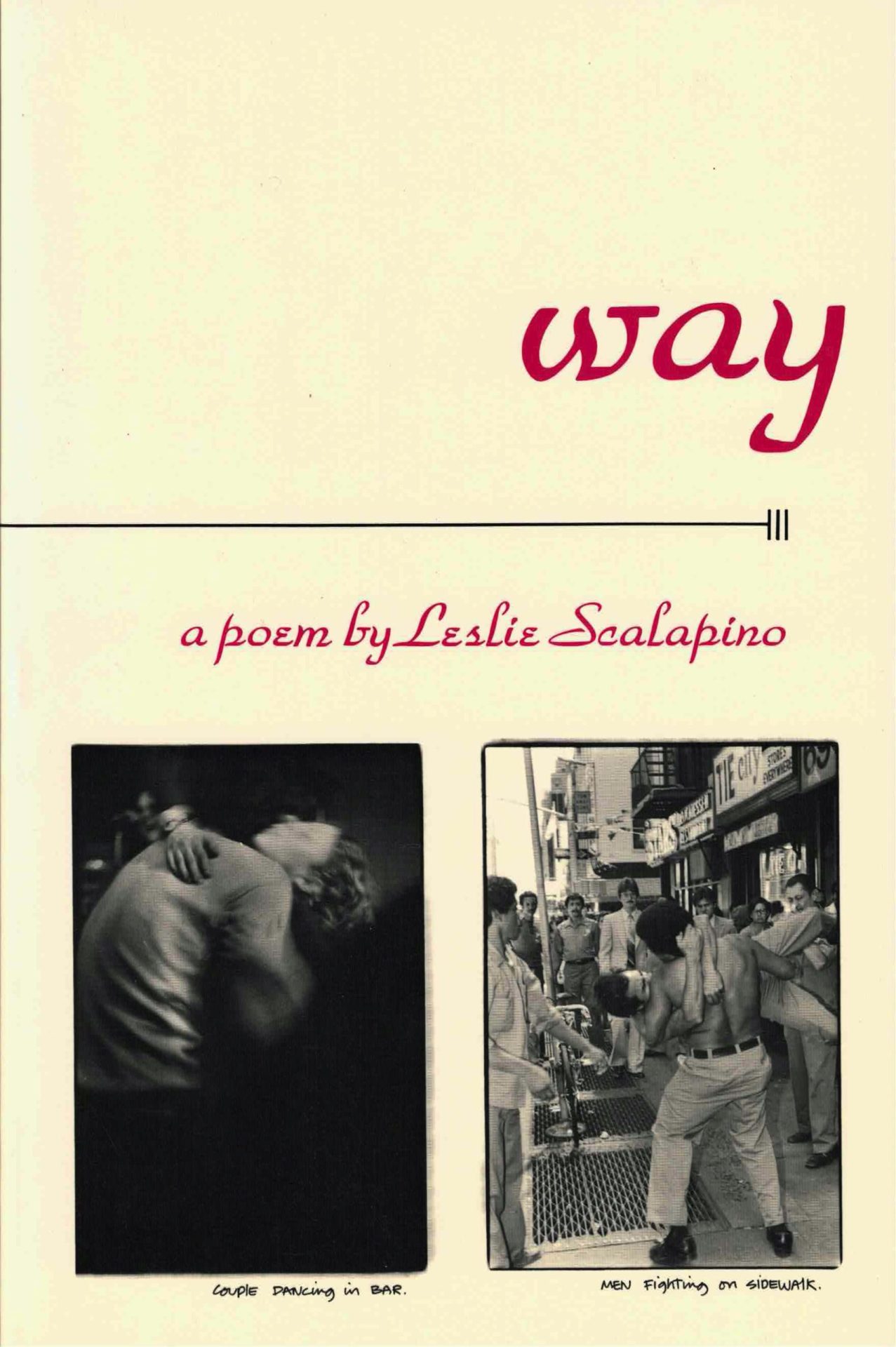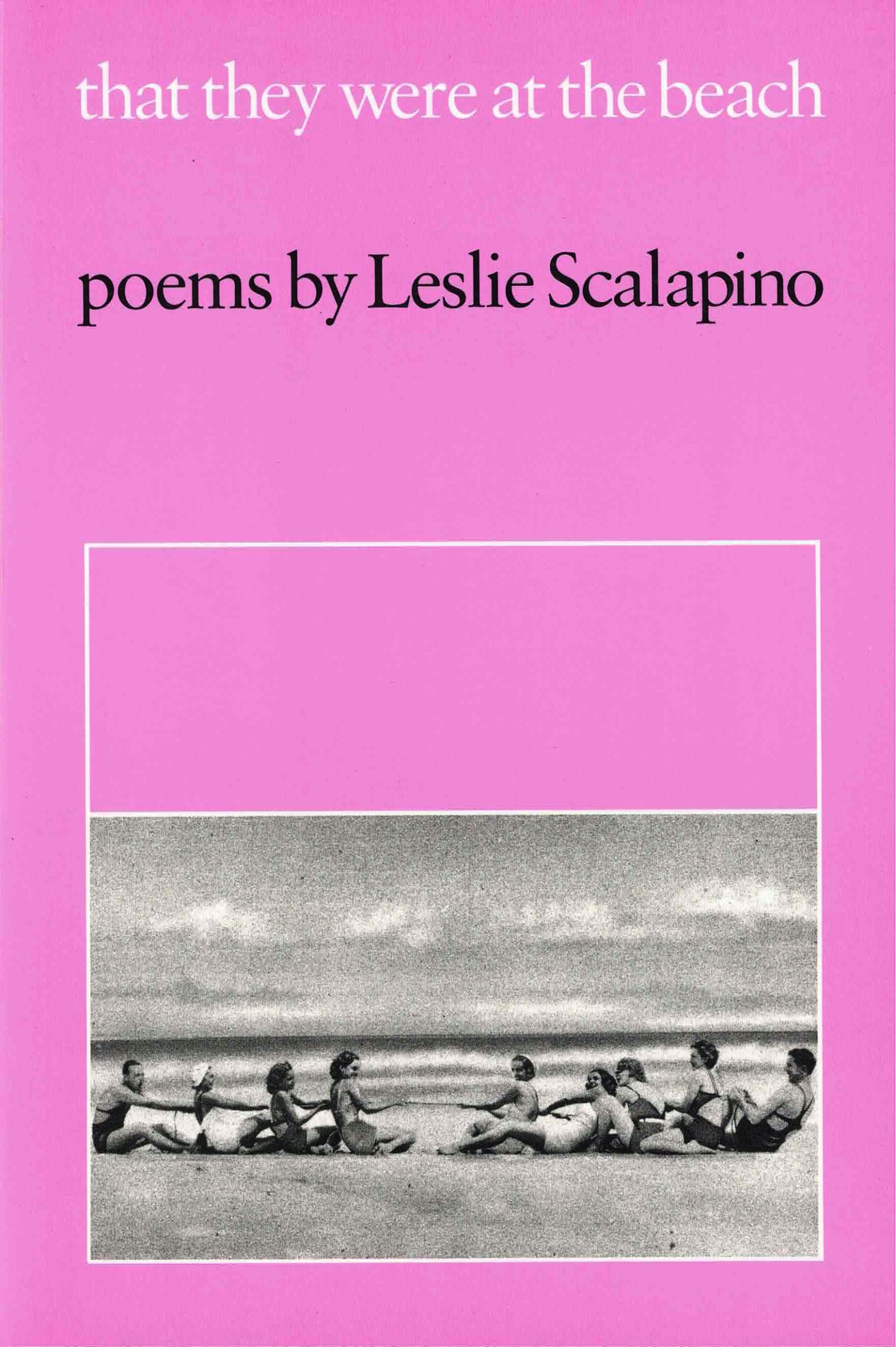Published by North Point Press
Leslie Scalapino’s way represents, in the words of one critic, “a refusal to limit the potential of experience.” Animals, events, gestures are examined, shuffled, monitored, creating a multilayered poem whose constant shifts and pluralities lay bare the latent sexual and social tensions that are rarely permitted expression. With relentless, exacting attention to the multiplicities contained in seemingly everyday observations—a policeman’s glance, a woman in a theater taking a hat from a man’s head—Scalapino proves herself a master at confronting the cerebral manifestations of obsession and alienation.
Leslie Scalapino
Praise for way
Leslie Scalapino has developed great expertise in presenting a hard-edged picture of the world. We are constantly made to realize that what she’s showing us is the world as we have constructed it: we’re the responsible parties; we’re the policemen, bums, burning automobiles upside down, pond lilies, men “in new wave attire.” Sometimes her words look vacant and many of her statements are outrageous, but she makes everything take place in real time, in the light and air and night where all of us live, everything happening at once.
— Philip Whalen
This window—of displacement, of alterity—is the way things are seen through language. It’s not the sense of having been there, even though you always were. The “anti-perspective” of Scalapino’s poetics is realism in its contemporary manifestation.
— Barrett Watten
way describes a reduced, urban landscape in which “homelessness,” once a term for existential alienation, is a concrete social fact. Leslie Scalapino studies that landscape through a series of short, highly compacted lyric moments that register the difficulties of achieving speech in the face of contingency. Rather than provide ever-more synthetic images of alienated, contemporary life, she remains within her own subtly modulated responses to matters of identity and sociality—not to escape them but to live the more authentically within their illusions.
— Michael Davidson




